
Average Cost per Square Foot Home Addition: A Comprehensive Guide for Homeowners in Northern Virginia
14 November 2024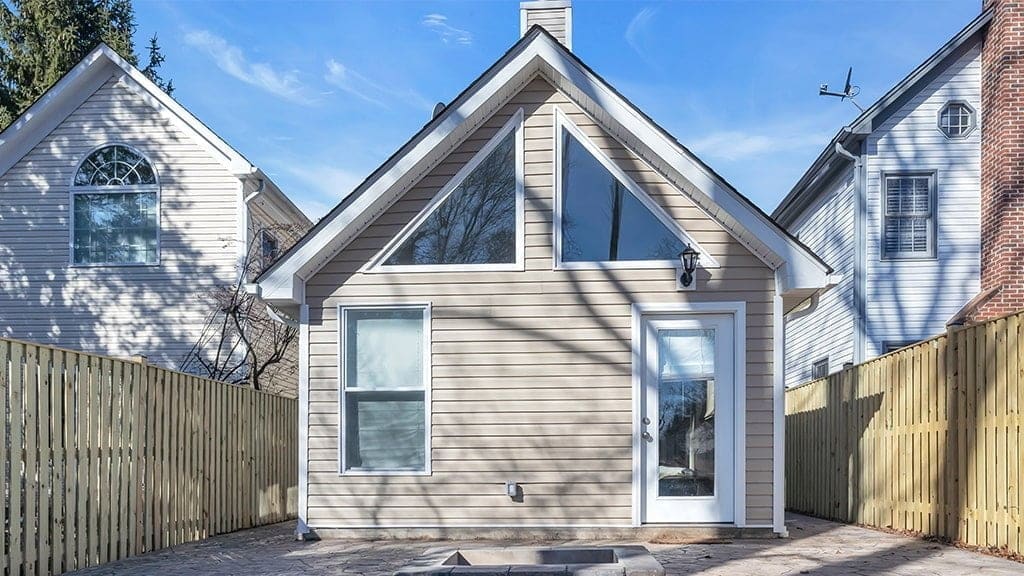
Room Additions in Vienna, Virginia: A Comprehensive Guide to Costs, Permits and Local Builders
21 November 2024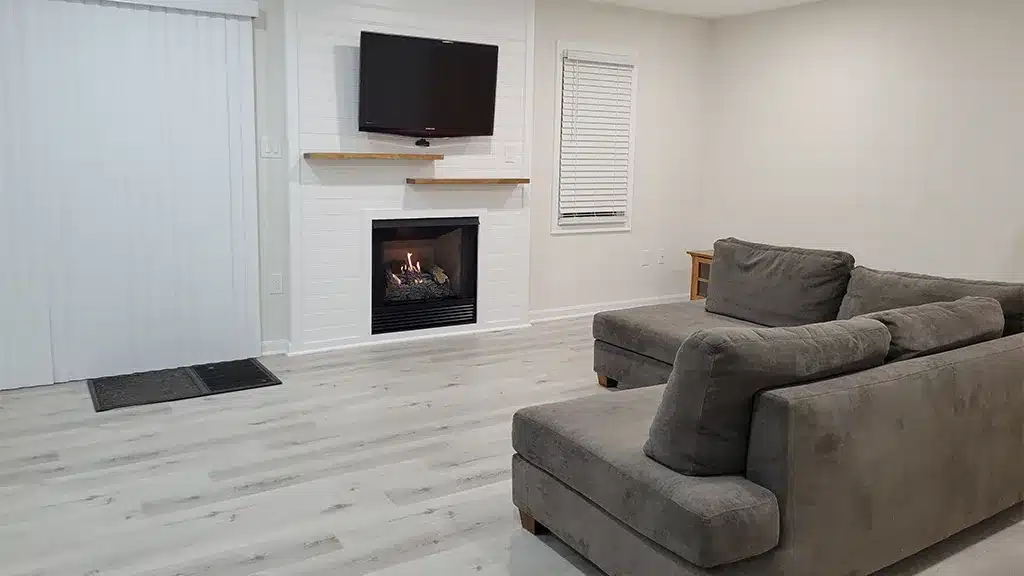
Basement Finish
Basement Finish Cost in Virginia (2025 Guide)
SCHEDULE YOUR
FREE IN-HOME CONSULTATION!
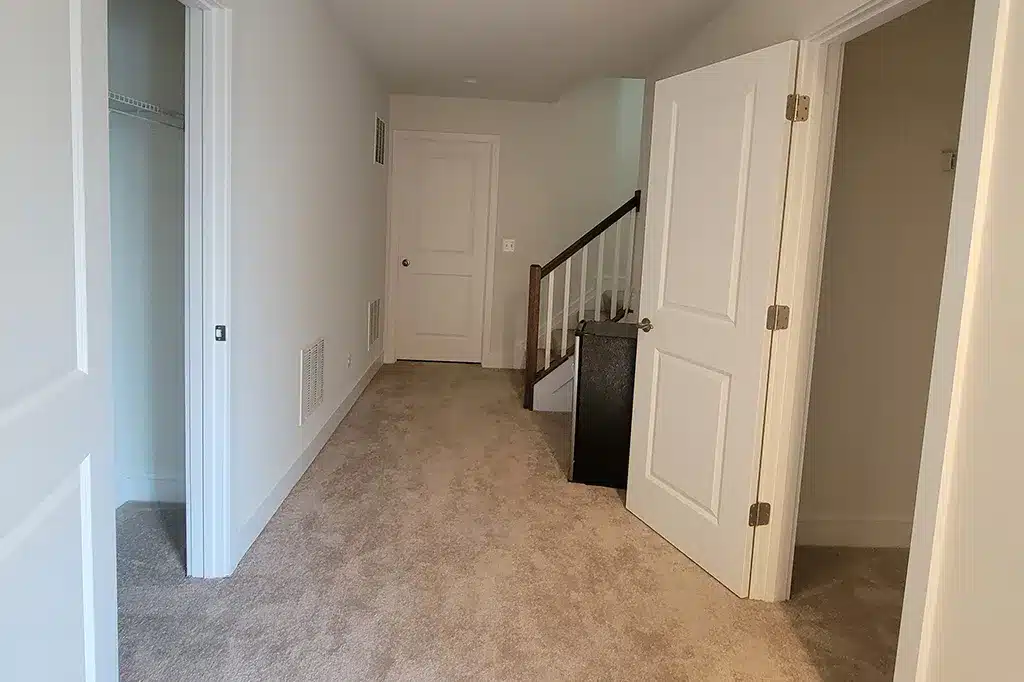
Finishing a basement can be a rewarding investment. It can add valuable living space to your home and increase its market value.
But how much does it cost?
This comprehensive guide will delve into the intricacies of basement finish costs. We'll explore factors that influence these costs, from labor and materials to permits and location.
Whether you're a real estate investor, a homeowner planning a renovation, or an aspiring project manager, this guide is for you.
We'll provide you with the insights you need to make informed decisions and maximize your investment. Let's get started.
Understanding Basement Finish Costs
Finishing a basement involves several key considerations. These include labor, materials, permits, and custom features. Each component carries its own cost, which adds to the overall expense.
On average, the cost to finish a basement ranges significantly. It can be as low as $20 per square foot or as high as $75 per square foot. This range depends on the finish level and design complexity.
Several factors can drive these costs. The size of the basement, the choice of materials, and any custom additions play significant roles. Furthermore, professional fees for skilled labor must be considered.
Let's break down the typical costs involved in a basement finish project:
- Labor Costs: These can vary depending on expertise and geographic location.
- Material Costs: Options range from economical to luxury finishes.
- Permits: Local regulations might require permits, adding to costs.
- Custom Features: Special features like bars or home theaters can escalate costs.
Understanding these factors will help in budgeting and planning your project efficiently. This knowledge sets the stage for a successful basement finishing endeavor.
The Importance of Location
Location greatly impacts the cost of finishing a basement. In areas with a high cost of living, expect to pay more for labor and materials.
The geographic location also dictates market conditions. This can affect the price and availability of materials. Competitive markets might offer better pricing due to numerous suppliers.
Furthermore, local regulations can require permits that impact the budget. Obtaining these permits can add to both time and cost. Being aware of these location-based factors helps in accurate financial planning.
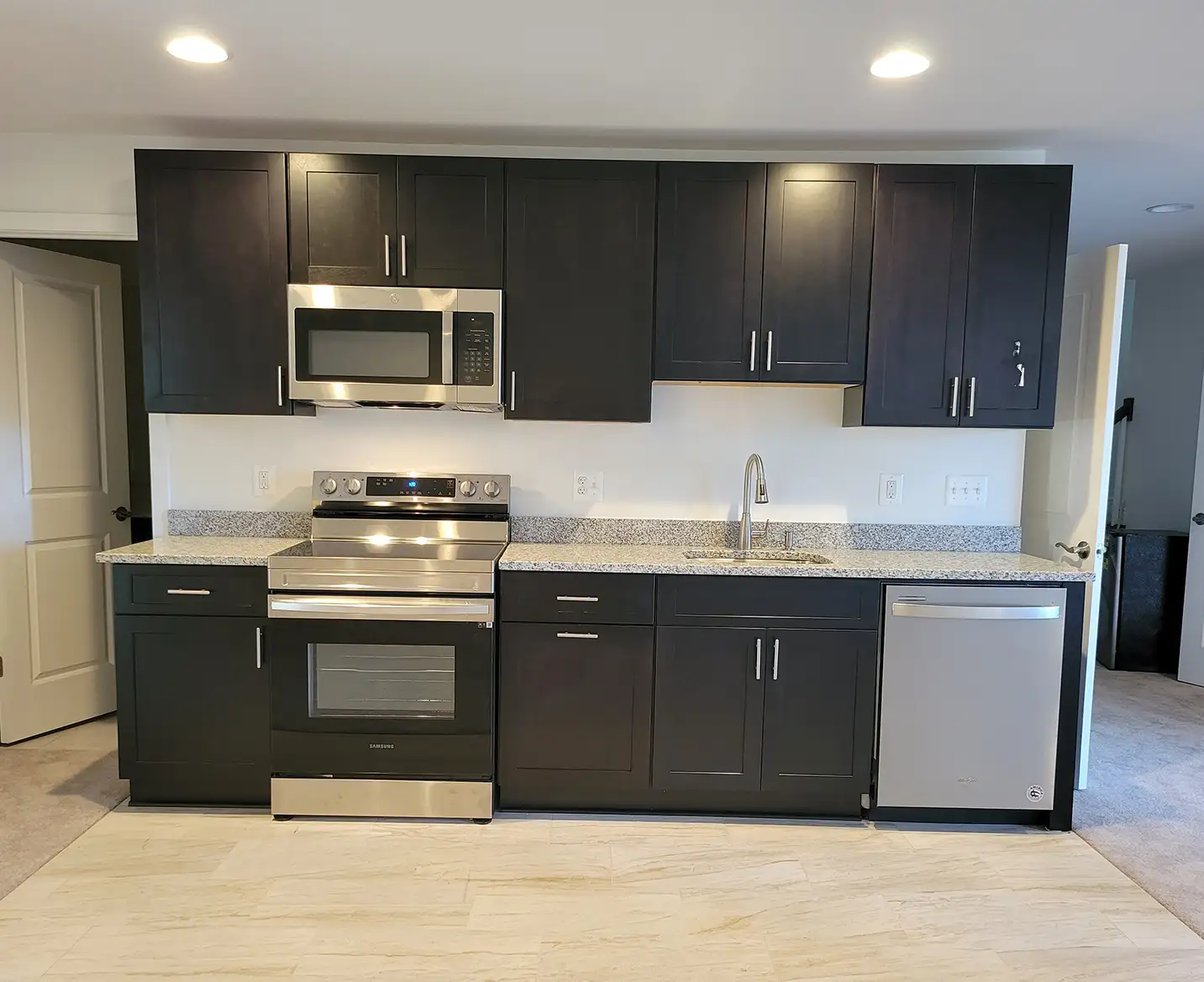
Average Cost Ranges and Factors That Influence Them
The average cost to finish a basement varies based on several elements. Size, design preferences, and the choice of contractors all play a role.
In some regions, costs can be more competitive. For example, finishing a basement in Virginia might have different pricing than in other states. It's important to understand the trends in your specific area.
Several factors can influence the overall cost. Here's a list to consider:
- Square Footage: Larger basements require more materials and labor.
- Finishing Level: Simple finishes are less costly than elaborate designs.
- Choice of Materials: High-end options add to the expense.
- Contractor Fees: Vary widely based on expertise and region.
- Unexpected Challenges: Unforeseen issues can cause financial and timeline overruns.
Account for these influences in your initial budgeting phase. This approach helps avoid unwanted surprises and keeps the project within financial expectations.
Cost Breakdown: Labor, Materials, and Permits
When planning your basement finishing project, it's crucial to break down the costs. Doing so ensures you understand where your money will go. Key components include labor, materials, and necessary permits.
Labor costs can take a significant chunk of your budget. These can vary, but hiring qualified professionals is crucial. They ensure quality workmanship and can help avoid costly mistakes.
Materials range from basic to high-end finishes. Your choice will significantly affect your budget. While basic materials can keep costs low, high-end options add a touch of luxury.
Permits and the permitting process are often overlooked. However, they are essential for compliance and can impact your timeline. Costs associated with permits vary by region and project scope.
Here's a brief breakdown of typical costs:
- Labor: Includes wages for contractors and skilled workers.
- Materials: Floorings, walls, ceilings, and special installations.
- Permits: Legal permissions required to start construction.
- Miscellaneous: Potential unexpected expenses or custom features.
Understanding each component helps in accurate budgeting. Having a detailed breakdown prevents surprises and eases financial planning.
Labor Costs and Hiring Qualified Professionals
Labor costs fluctuate based on region and expertise. Hiring experienced professionals often comes at a higher price. However, their expertise can be invaluable, ensuring quality and adherence to timelines.
While some may consider DIY to save on labor, it's important to weigh the risks. Professional contractors can avoid costly reworks and bring value through their skills. Always ensure they have the necessary certifications for your peace of mind.
Budgeting for labor involves more than just calculating hourly rates. Consider benefits, potential overtime, and insurance coverage. Understanding these factors ensures an accurate reflection of true labor costs.
Material Costs: From Basic to High-End Finishes
Material costs can vary greatly depending on choices. Basic options, like standard drywall and carpeting, offer economical solutions. These are great if you're looking to finish your basement on a budget.
High-end finishes can transform your basement into a luxurious space. Marble flooring, custom cabinets, and premium lighting are examples. While these elevate the aesthetic, they come at a higher price point.
It's important to balance your desires with your budget. Material selection should align with the project's purpose. Prioritize materials that add value and fit your financial plan.
Permitting Process and Costs
The permitting process can be an unexpected hurdle. Many regions require permits to ensure safety and compliance with building codes. The costs for these permits vary and add to your overall budget.
Understanding the local requirements is crucial before starting your project. Neglecting this step can lead to fines or delays. Proper planning with local authorities will save both time and money.

Regional Considerations: Cost to Finish Basement in Virginia
Finishing a basement in Virginia carries its unique set of considerations. The state's diverse geography can influence construction logistics and costs. Northern Virginia, with its proximity to Washington D.C., often sees higher labor rates due to the urban influence.
Material costs can also vary across different parts of Virginia. Urban areas might have access to more suppliers and varied material options. Meanwhile, rural locations could experience higher transport fees for materials, impacting the overall budget.
Climate plays a role in basement finishing projects in Virginia. Humid summers and varying terrain can necessitate moisture control measures. Ensuring proper insulation and preventing water intrusion becomes a priority, potentially increasing costs.
Additionally, local regulations might impact the timeline and budget. Virginia's building codes are strict, requiring adherence to standards for safety and efficiency. Understanding these regional factors can aid in creating a realistic budget for your basement project in Virginia.
Calculating Your Basement Finish Cost with a Cost Finish Basement Calculator
Accurately budgeting for a basement finishing project can be daunting. Fortunately, a cost finish basement calculator provides a streamlined way to estimate expenses. This tool considers various factors and provides an approximate cost based on your inputs.
To use the calculator effectively, you'll need to provide specific details about your project. Key information typically includes square footage, desired finishing level, and regional considerations. Many calculators allow customization for features like egress windows or high-end finishes.
The calculator breaks down costs into categories, such as labor, materials, and additional custom features. Here's what you might need to input:
Total square footage of the basement area.
Level of finish (basic, mid-range, or high-end).
Additional features like plumbing and HVAC installations.
While these calculators offer a starting point, consulting a professional is crucial for a detailed budget. They can provide insights and adjust estimates based on local market trends and specific site conditions. By integrating these tools and expert advice, you can align your financial planning with project goals, ensuring a smoother path to completion.
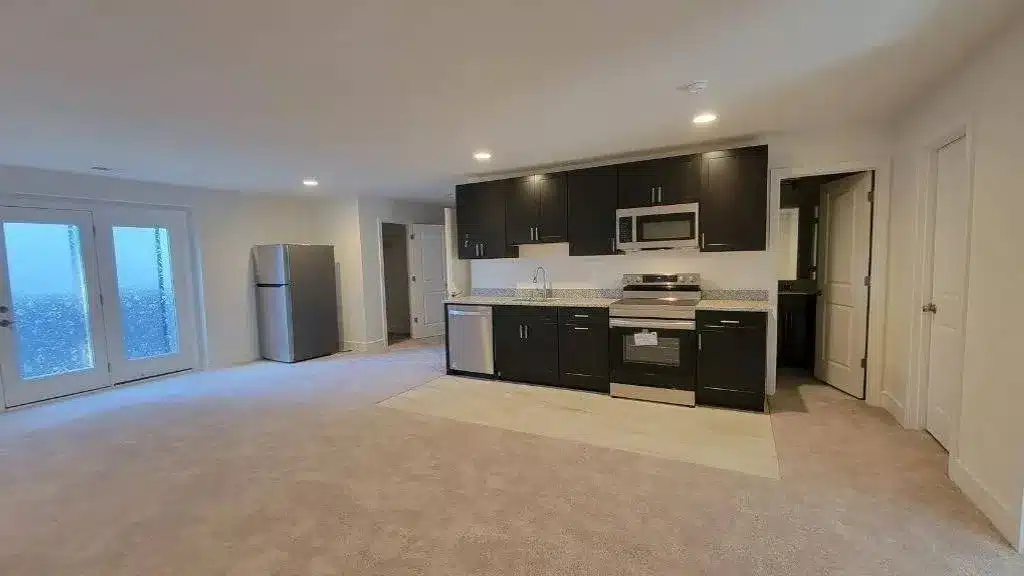
Custom Features and Their Impact on Your Budget
Custom features can significantly elevate your basement's functionality and aesthetic but often come at a cost. It's crucial to weigh the benefits against the financial implications carefully. A thoughtful approach ensures you enhance your space without overshooting your budget.
Incorporating features like a wet bar or home theater can create inviting and multi-functional spaces. Such additions, however, require specialized installations, impacting both material and labor costs. It's essential to explore options that balance your vision with financial feasibility.
Storage solutions and built-in shelving can also offer practical benefits. They help maintain organization and enhance usability without excessive expenses. Compare various styles and materials to find budget-friendly alternatives that meet your needs.
When considering customizations, focus on features that add value and fit your lifestyle. Prioritizing essentials can help in managing costs effectively. Carefully select elements that will bring enjoyment and utility for years to come.
Plumbing, Electrical, and HVAC Considerations
Integrating plumbing, electrical, and HVAC systems into your basement design is integral for functionality. These systems influence not just usability but also your overall budget. Proper planning ensures that your basement meets your needs without unexpected expenses.
Adding plumbing for bathrooms or kitchenettes requires skilled labor and quality materials. It's vital to assess your needs, given the complexity and cost of installation. Factor in both upfront expenses and long-term maintenance requirements.
Electrical work encompasses lighting, outlets, and appliance connections, which vary based on design complexity. A basic setup might be straightforward, but tailored lighting designs or additional outlets may increase costs. Evaluate the long-term benefits before proceeding with enhancements.
HVAC considerations ensure that your basement remains comfortable throughout the year. Effective heating and cooling systems prevent dampness and improve air quality. While initial installation is costly, efficient systems can lead to energy savings over time, creating a worthwhile investment.
The Value of Egress Windows and Moisture Control
Egress windows aren't just a legal necessity; they are an essential safety feature that can add value to your basement. These windows provide a vital escape route in emergencies and offer natural light, enhancing the overall ambiance. While they represent an upfront investment, their benefits extend to safety and comfort.
Installing egress windows can be a major construction endeavor, involving adjustments to foundation walls. The costs can vary widely, but their inclusion is often a legal requirement for habitable spaces. Consider this when planning your basement layout and budget.
Moisture control is crucial for maintaining a healthy and durable basement environment. Excessive dampness can lead to mold, structural damage, and discomfort. Implementing effective moisture barriers, dehumidifiers, and proper drainage ensures a dry and secure space.
Strategically investing in egress windows and moisture control saves potential repair costs and enhances property value. Integrating these elements thoughtfully prevents future complications and optimizes your living space for comfort and safety. Prioritizing such features sets a solid foundation for a successful basement finishing project.
Maximizing Your Investment: ROI and Property Value Increase
Finishing your basement is not just about adding more living space; it also enhances your property's marketability. A well-done basement can significantly boost your home's resale value, attracting potential buyers who value additional functional areas. Understanding the potential return on investment (ROI) helps guide your decision-making process.
An intelligently finished basement can serve various purposes, from a guest suite to a home office, making your property more versatile. This adaptability can appeal to a wide range of buyers, thus increasing your home's desirability and justifying a higher selling price. The key is to align the finished space with current market demands.
It's essential to consider the cost versus the potential increase in property value. While luxurious finishes may seem appealing, they should be balanced with your neighborhood's standards to avoid overinvesting. Consulting with real estate experts can help you make informed decisions on appealing features.
Moreover, energy-efficient upgrades and thoughtful design can contribute to long-term savings, enhancing the overall value of your investment. As you plan your basement project, focus on additions that not only enhance daily living but also offer tangible financial benefits. This approach ensures that your renovation aligns with both personal enjoyment and strategic asset building.
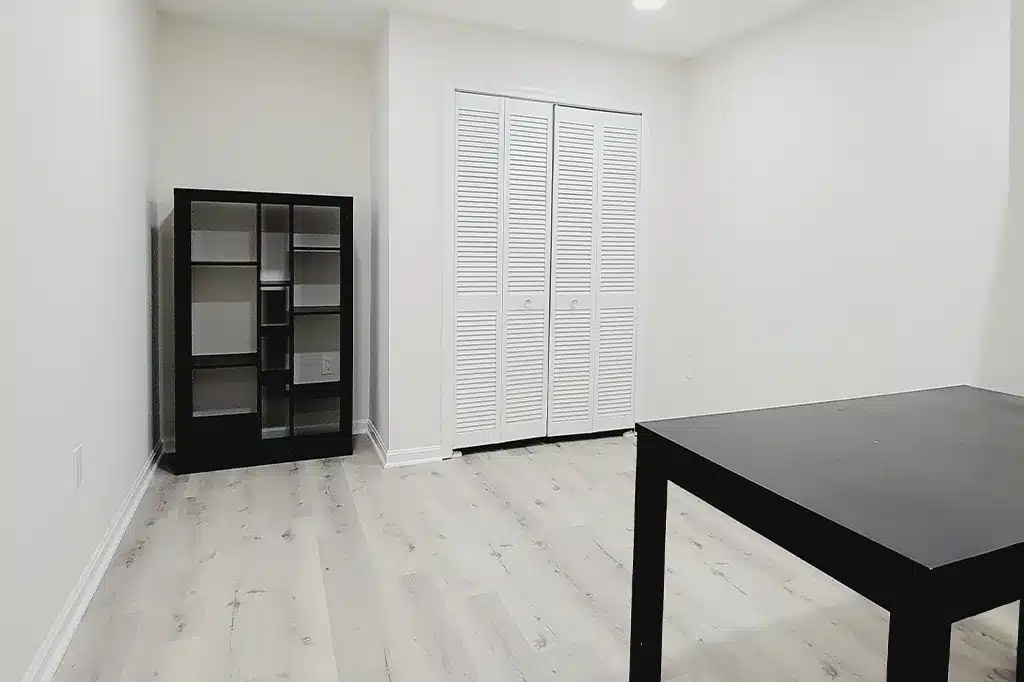
Project Management Tips for Keeping Costs Under Control
Successfully managing a basement project within budget requires strategic planning and effective oversight. It's crucial to anticipate potential hurdles and allocate resources efficiently from the onset. Without these measures, costs can easily spiral beyond expectations.
To start, establish a comprehensive plan that outlines every phase of the renovation. This detailed approach will help identify essential tasks, required materials, and potential delays. Next, implement a robust budget that accounts for expected expenses and a contingency fund for unexpected costs.
Consider the following strategies to maintain control over your budget:
- Prioritize must-have features over optional ones.
- Use a phased renovation approach to spread out costs.
- Regularly review project milestones with contractors.
Maintaining open communication with your construction team ensures alignment on goals and expectations. Regular progress meetings allow you to address issues promptly, adjust plans as needed, and keep your project on track.
The Role of Detailed Planning and Budgeting
Detailed planning is fundamental to the success of any construction project. By clearly defining the scope, you minimize the risk of scope creep, which can lead to unforeseen expenses. A well-thought-out plan helps allocate funds more precisely.
Budgeting requires not only accounting for materials and labor but also considering hidden costs like permits and inspections. Accurate estimates help avoid unpleasant surprises and keep financial expectations realistic. Ensure every line item is justified by practical needs.
Moreover, a detailed budget offers a clear framework for monitoring expenses as the project progresses. By comparing actual costs with budgeted amounts, you can quickly identify and address discrepancies. This level of diligence is key to staying within financial limits.
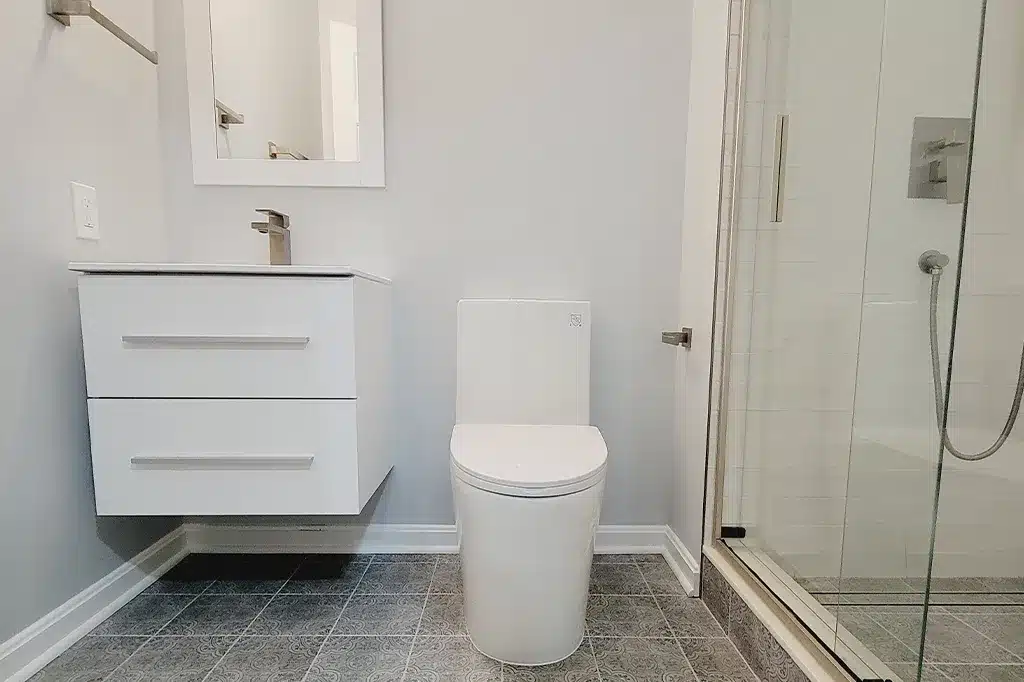
The Benefits of Professional Project Management Services
Hiring a professional project manager can dramatically enhance the efficiency and outcome of your basement renovation. These experts bring invaluable experience, ensuring that every aspect of your project is executed smoothly. Their insight can often translate into significant time and cost savings.
Project managers excel in coordinating various tasks and trades, streamlining communication between teams. They adeptly handle logistics, scheduling, and material sourcing, keeping the project running seamlessly. This holistic oversight frees you to focus on other responsibilities.
Furthermore, seasoned project managers have extensive networks, providing access to reputable contractors and suppliers. Their negotiation skills can lead to better rates and terms, positively affecting your budget. Investing in their services ultimately protects and enhances your financial investment.
DIY vs. Professional Basement Finishing: What's Best for Your Budget?
When contemplating a basement renovation, deciding between a DIY approach and hiring professionals is pivotal. Each route offers unique advantages and potential drawbacks that can influence your overall project budget.
Opting for a DIY approach can significantly reduce labor costs. By tackling tasks yourself, you save on the expenses associated with hiring contractors. However, it requires significant time investment and a high skill level, especially for complex jobs like electrical or plumbing work.
On the other hand, professional finishing ensures expert-level quality and adherence to building codes. Professionals bring experience and efficiency, often completing projects faster and with fewer mistakes. This approach can help avoid costly repairs down the line due to improper installation.
Consider these aspects when deciding which route is best for your budget:
- Your skill level and familiarity with the task.
- The complexity of the renovation work.
- The potential cost of correcting DIY mistakes.
Ultimately, the choice between DIY and professional involvement should reflect your financial resources, time availability, and the nature of the renovation. Professional services may incur higher upfront costs but often provide peace of mind and higher quality outcomes. Whether you prefer to roll up your sleeves or seek expert assistance, weigh both options carefully to align with your goals and budget.
Conclusion: Making Informed Decisions for Your Basement Project
Finishing a basement can significantly enhance your home's value and functionality. Understanding the costs involved, from labor and materials to permits and custom features, is essential for a successful project.
It's crucial to evaluate your specific needs, budget, and expertise before embarking on your renovation journey. Using tools like a cost finish basement calculator and considering professional project management services can provide clarity and control over expenses. By making informed decisions and planning meticulously, you can transform your basement into a valuable space that meets your expectations and enhances your living experience.
Service Areas:
LOUDOUN COUNTY
- Leesburg
- Ashburn
- Sterling
- Purcellville
- Middleburg
- Lovettsville
- Round Hill
- Hamilton
- Broadlands
- Brambleton
- Lansdowne
- South Riding
- Stone Ridge
- Aldie
- Cascades
FAIRFAX COUNTY
- Fairfax
- Reston
- Herndon
- Vienna
- Falls Church
- Tysons
- McLean
- Chantilly
- Annandale
- Bure
- Centreville
- Clifton
- Oakton
- Springfield
- Great Falls
- Lorton
ARLINGTON COUNTY
- Ballston
- Clarendon
- Rosslyn
- Crystal City
- Pentagon City
- Shirlington
PRINCE WILLIAM COUNTY
- Manassas
- Woodbridge
- Dumfries
- Haymarket
- Occoquan
- Quantico
- Dale City
- Lake Ridge
- Montclair
- Bristow
- Gainesville
- Nokesville





1 Comment
We recently hired Mosaic Design + Build to finish our basement in Virginia, and the experience exceeded all our expectations. From the initial consultation, they provided a thorough breakdown of the costs involved, tailored to our specific needs. They were upfront about materials, labor, and potential upgrades, so there were no surprises along the way.
Their design expertise truly shone as they transformed our unfinished basement into a functional and stylish space, complete with a home office, entertainment area, and storage solutions. The team’s craftsmanship and attention to detail were impeccable, and they stayed on budget while delivering high-quality results.
If you’re considering finishing your basement, Mosaic Design + Build is a fantastic choice. They made the process smooth and stress-free, and the final result was absolutely worth the investment!